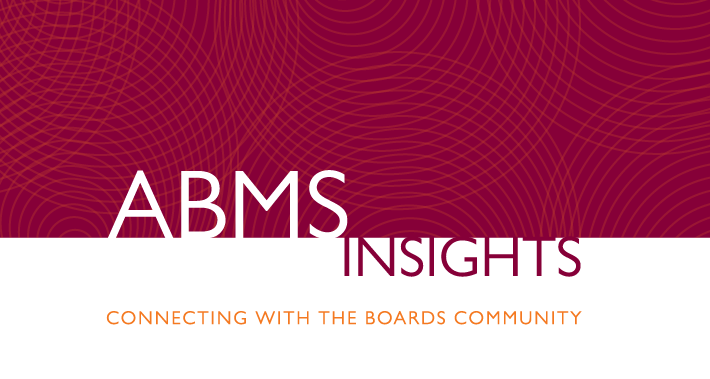
by Robert L. Phillips, MD, MSPH, Founding Executive Director, Center for Professionalism & Value in Health Care
We are drowning in information but starved for knowledge.
John Naisbitt*

The 24 Member Boards of the American Board of Medical specialties (ABMS) are uniquely positioned between the interests of the public and the profession, not in the tensions between them, but rather in the shared space of improving care and outcomes. One way that certifying boards can serve both interests is as an honest broker of highly reliable data at a time when the data that policymakers rely upon is crumbling. In the absence of good data, policymakers can make bad decisions that hurt physicians and our patients. The American Board of Family Medicine (ABFM) has collected data routinely from board certified family physicians (also known as diplomates) for more than 40 years but in the last dozen years, it has done so with the express purpose of understanding the ecology of Family Medicine—how it is changing, the pressures on the workforce, and how it affects our diplomates. In 2018, ABFM created the Center for Professionalism & Value in Health Care to help change the policies that affect health care professionals and enable them to deliver better care with less burden and less burnout. Good data have been a key lever for this goal.
Electronic Health Records. Fifteen years ago, the Health Information Technology for Economic and Clinical Health Act sought to rapidly spread uptake of electronic health records (EHRs), improve quality, and make health care data more interoperable. The Office of the National Coordinator for Health Information Technology (ONC) relies on the National EHR Survey to track these goals, but its response rate threatens its reliability. ABFM has tracked clinical computer use and EHR uptake for decades. A more recent collaboration with ONC is shedding light on EHR satisfaction, the remarkable lack of interoperability, and the relationship between burnout and pajama time, or EHR work after clinic. We hope other ABMS Member Boards will join the effort to broaden the lens on this important policy opportunity as EHR functionality and burden are important drivers of care quality and physician quality of life.

Medical Education. ABFM regularly surveys residency graduates as they certify and again three years later. These data reveal that more than 40 percent of our trainees enter the workforce already burned out. Partnerships with residency program directors also provide a feedback loop on trainees’ preparation for practice. We’re able to inform policymakers about trends in loan repayment and about relationships between state health policy and practice location choices. We are now pushing data collection earlier in residency looking to better understand patterns that matter to resident well-being and career choices.
National Health Data. We are currently testing the reliability of our diplomate survey data as a supplement to critical national health surveys managed by the Centers for Disease Control and Prevention (CDC). National health surveys are used routinely for research and policy, but response rates are plummeting, threatening reliability. Certifying boards may be the best option for shoring up these critical data that inform policies that affect our diplomates.
Registries. ABFM is the rare certifying board to host a national clinical registry, but there are important opportunities for other boards to collaborate with specialty society-hosted registries. The PRIME Registry first serves the needs of practicing primary care professionals—it helps them turn their data into information that serves their needs. The secondary uses of these clinical data have enabled ABFM to serve its interests with CDC, the Food and Drug Administration, and United States Census Bureau. These relationships are building bridges between clinical care and public health, identifying inequities in medication access, and informing how to adjust clinical payments to meet social needs. PRIME data have also been an attractor for academic partnerships that greatly extend ABFM’s capacity to generate knowledge from the data captured every day by frontline clinicians.
The ABMS Member Boards offer knowledge and information that can influence policy and improve the capacity of our diplomates to be well while doing good. This can be the small p policies of health systems or the big P policies of government. Designing data collection that meets our internal needs can also enable meeting external needs and give us authority to ask for a seat at the decision-making table. The Center for Professionalism & Value in Health Care aims to help the boards community create the knowledge that can change policy and the well-being of our diplomates.
© 2024, American Board of Medical Specialties.
* Author of the 1982 bestseller Megatrends: Ten New Directions Transforming Our Lives
-
Read More:
- ABMS Insights |
